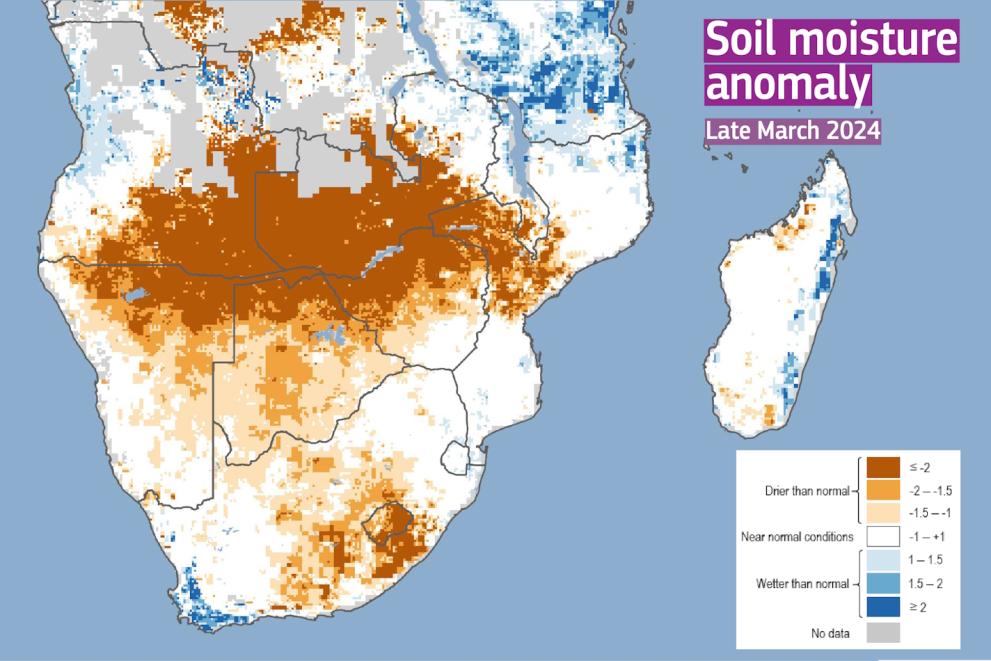
From October 2023 to March 2024, rising temperatures and a severe lack of precipitation have intensified and expanded progressively across Angola, Zambia, Zimbabwe and Namibia, as well as most of Zambezi basin and southern Madagascar. Record-high temperatures dating back to 1960 have been exacerbating the situation. The Zambezi river is flowing at very low levels for the season which is severely disrupting ecosystems.
The European Commission’s Joint Research Centre - with the active support of the African Centre of Meteorological Applications for Development - has been assessing and analysing the situation using advanced monitoring and forecasting tools. A new report aims to provide relevant information to support decision-making and mitigate the multi-sectorial impacts of the current drought.
The agricultural sector has been severely impacted. Extreme conditions are affecting the critical food growing periods and leading to acute food insecurity in most regions of the Zambezi basin. Moreover, the increased wildfire risk in is bringing additional challenges to those living in Namibia, Botswana, and north-western South Africa. The energy system is also under strain as hydropower production struggles with lack of water supply.
Insufficient rainfall and high temperatures worsen the crisis
The drought began in Botswana in October 2023, and has been gradually intensifying and expanding across Angola, Zambia, Zimbabwe, and Namibia, affecting most of southern Africa today.
Prolonged above-average temperatures and minimal precipitation have led to severe soil moisture deficits and vegetation stress across Southern Africa. The satellite-derived vegetation index indicates severe stress in several countries, reflecting the harsh impact of the drought on ecosystems and agriculture.
Persisting drought requires international response
While early April 2024 may give temporary relief with some precipitation in specific regions, seasonal forecasts predict drier and warmer conditions for the coming months.
The probability of continued low river flows - particularly in western Zambia and south-eastern Angola - and below-average precipitation through June poses further threats to agriculture, ecosystems, energy production and food security in the region.
Urgent international support and coordinated water resource management are crucial to mitigate and cope with the impacts of the drought crisis and identify adaptation strategies. As the situation continues to evolve, close monitoring and proactive measures are essential to address the escalating humanitarian needs in Southern Africa.
JRC cooperation with partners in Southern Africa, international organisations and projects such as the Group on Earth Observations Global Agricultural Monitoring, is helping to enrich the technical and scientific understanding of the drought with reliable and relevant data, and locally developed analysis. This collaborative work is helping to plan action to address the challenges in the short term, and to prepare better for future drought seasons.
This kind of work is more important than ever. The UN Intergovernmental Panel on Climate Change (IPCC) has found that droughts are becoming increasingly common and severe due to climate change. Working with relevant partners, the JRC is providing the scientific data and analysis to help society adapt to the adverse effects of climate change in Europe and around the world.
Sources
Details
- Publication date
- 19 April 2024
- Author
- Joint Research Centre
- JRC portfolios




